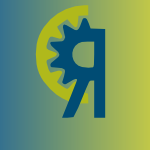11 papers:
 SANER-2015-EshkevariSCA #php #question
SANER-2015-EshkevariSCA #php #question- Are PHP applications ready for Hack? (LME, FDS, JRC, GA), pp. 63–72.
 CSCW-2015-FoxUR #recognition
CSCW-2015-FoxUR #recognition- Hacking Culture, Not Devices: Access and Recognition in Feminist Hackerspaces (SF, RRU, DR), pp. 56–68.
 DATE-2014-HamdiouiDNSBT #hardware
DATE-2014-HamdiouiDNSBT #hardware- Hacking and protecting IC hardware (SH, JLD, GDN, FS, GvB, MT), pp. 1–7.
 CHI-2014-BardzellBT #quote #self #tool support
CHI-2014-BardzellBT #quote #self #tool support- “Now that’s definitely a proper hack”: self-made tools in hackerspaces (JB, SB, AT), pp. 473–476.
 SAC-2014-ZangerleS #classification #quote #twitter
SAC-2014-ZangerleS #classification #quote #twitter- “Sorry, I was hacked”: a classification of compromised twitter accounts (EZ, GS), pp. 587–593.
 DUXU-PMT-2013-Evans #bibliography #online
DUXU-PMT-2013-Evans #bibliography #online- Beyond Satisfaction Questionnaires: “Hacking” the Online Survey (ALE), pp. 222–231.
 ICSE-2010-Schneider #exclamation
ICSE-2010-Schneider #exclamation- Beyond hacking: an SOS! (FBS), p. 2.
 CHI-2009-RosnerB #learning
CHI-2009-RosnerB #learning- Learning from IKEA hacking: I’m not one to decoupage a tabletop and call it a day (DR, JB), pp. 419–422.
 ITiCSE-2005-Clark #self
ITiCSE-2005-Clark #self- Hacking as a form of “self-improvement” (EC), p. 397.
 CSEET-2002-DuleyM
CSEET-2002-DuleyM- Cutting Hacking: Breaking from Tradition (RD, SPM), pp. 224–233.
 TOOLS-USA-2001-McClure #how #privacy #security
TOOLS-USA-2001-McClure #how #privacy #security- Hacking = Privacy: How Computer Hacking Can Shore Up Your Defenses and Deliver the Closest Ideal to Security Available (SM), p. 7.
 SANER-2015-EshkevariSCA #php #question
SANER-2015-EshkevariSCA #php #question CSCW-2015-FoxUR #recognition
CSCW-2015-FoxUR #recognition DATE-2014-HamdiouiDNSBT #hardware
DATE-2014-HamdiouiDNSBT #hardware CHI-2014-BardzellBT #quote #self #tool support
CHI-2014-BardzellBT #quote #self #tool support SAC-2014-ZangerleS #classification #quote #twitter
SAC-2014-ZangerleS #classification #quote #twitter DUXU-PMT-2013-Evans #bibliography #online
DUXU-PMT-2013-Evans #bibliography #online ICSE-2010-Schneider #exclamation
ICSE-2010-Schneider #exclamation CHI-2009-RosnerB #learning
CHI-2009-RosnerB #learning ITiCSE-2005-Clark #self
ITiCSE-2005-Clark #self CSEET-2002-DuleyM
CSEET-2002-DuleyM TOOLS-USA-2001-McClure #how #privacy #security
TOOLS-USA-2001-McClure #how #privacy #security









